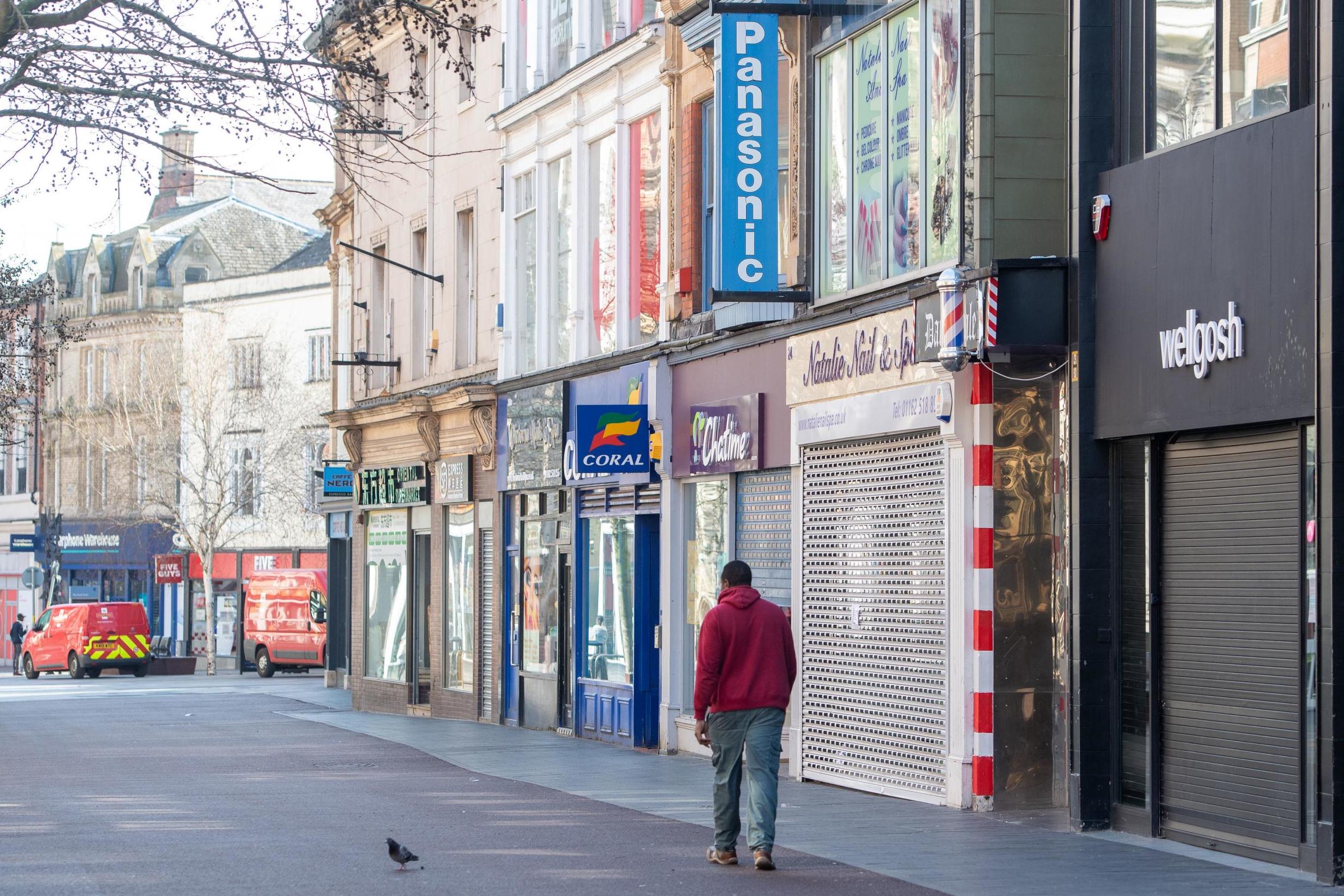Our hugely imbalanced economy is down to much more than the north-south divide
Broader, deeper inconsistencies have been exposed by coronavirus, writes Chris Blackhurst


This week I met a friend in the countryside. We were socially distanced. Our pre-arranged rendezvous was at a beauty spot, where we knew there was a café and a car park. We sat outside, at one of the benches, trying to not let the rain get us down. We would have liked tea or coffee except the café was closed. We wished to spend money, but could not.
There were lots of people around. They too, I guess, would have happily bought drinks and snacks. Where was the gumption to erect a gazebo, marquee, or some sort of shelter that would have accommodated us all, served us, and stayed within the new rules?
What was noticeable was just how shut and slow, and empty, everywhere felt. The villages, and the high street in the nearest small town, were deserted, but in the cities and larger towns, the bustle is returning, branches of Pret a Manger, Starbucks and the more go-ahead operators are open again. Away in the sticks, you could not buy a hot drink anywhere.
It may seem trivial, which indeed it was – our afternoon was not spoiled as a result. In fact though, what I experienced at first hand was serious, and as we try to come out of lockdown, and as we want the economy to recover, it should provoke alarm. I was witnessing further evidence of our hugely imbalanced economy.
There is a clear gap between those better off pensioners who are in good health and able to enjoy their lives, and young families who struggle
When people speak of Britain’s economy being skewed they quickly fall into the north versus south argument. Yes, there is that, but the lack of balance extends much broader and far deeper.
It’s on every level you choose to look. Parts of our economy are world class; parts are hopelessly weak. Our financial services and capital-raising sectors lead the world. Our professional services, and tech and digital, are up there as well. But is our manufacturing industry, such as it is, still relevant – is it really giving other nations what they want? Yes, some businesses are. They, though, are too few.
The City and West End of London head the regional global competitive rankings. Camden and King’s Cross is performing strongly as well. Away from London, the Oxford, Buckinghamshire, Bedfordshire to Cambridge belt is a star, as is Surrey leading into West Sussex, and Hampshire. Three regions in Inner London, and on its fringes, that easily hold their own against the best the rest of Europe, and the world, can throw at them.

Equally, though, at the opposite end of the scale, there are parts of the north, Midlands and Wales that rank among the weakest.
We’ve got the urban versus rural divide, of which I observed just one small facet. There is coastal against inland. Some of our seaside towns are among the most “left behind”, their economies are moribund, they’re propped up by government benefits. They’re also in the south, some of them, so this is not a north-south issue.
The imbalance exists in skilled and unskilled. Where once our industries harnessed crafts and skills that were the envy of anywhere, and nurtured them via well-honed apprenticeship schemes, as those factories and plants have perished so the genius they spawned has also vanished. Critically, they’ve not been replaced.
How to generate meaningful employment in post-industrial Britain is the most vexing of problems – giving rise, as unemployment and poorly paid work inevitably do – to social and health inequality. Again, it’s not a simple case of north-south. The need for investment in training, in providing workers equipped for the marketplace of the 21st century, is marked in locations across the north, but there are places in the south that have similarly seen industries disappear and nothing appearing in their stead.
Neither is the chasm simply about the absence of proper, long-term careers, “jobs with prospects”. Transport infrastructure is a positive in one region, and a blight in another.
Our education split is clear and historic. But it’s not just the straightforward case of private and state. Throughout Britain there are outstanding state schools offering first-class teaching. Unfortunately, however, there are schools that produce abysmal results – and this is not always the result of them serving a disadvantaged community. Sometimes there is little on paper to separate them from the top-of-the-chart schools, except poor teachers and leadership.
The economy is characterised, too, between those who own their homes and those who rent. Home-owning remains the aspiration and is actively encouraged by politicians from across the spectrum. It is, though, prohibitively expensive.
Old versus young is another area where the playing field is not level, where there is a clear gap between those better off pensioners who are in good health, and able to enjoy their lives, and young families who struggle. Back when we were allowed to visit them, and they were open, it was possible to venture into pubs, especially those that were out-of-town, at lunchtime and find them crowded with cheerful diners, and barely anyone under 60 years of age.
The corona pandemic has shone a light on the underlying condition of our economy. That fragility could become more apparent as we emerge from the crisis and recalibrate. To use the government’s phrase, there is much “levelling up” to be done.
Join our commenting forum
Join thought-provoking conversations, follow other Independent readers and see their replies
0Comments